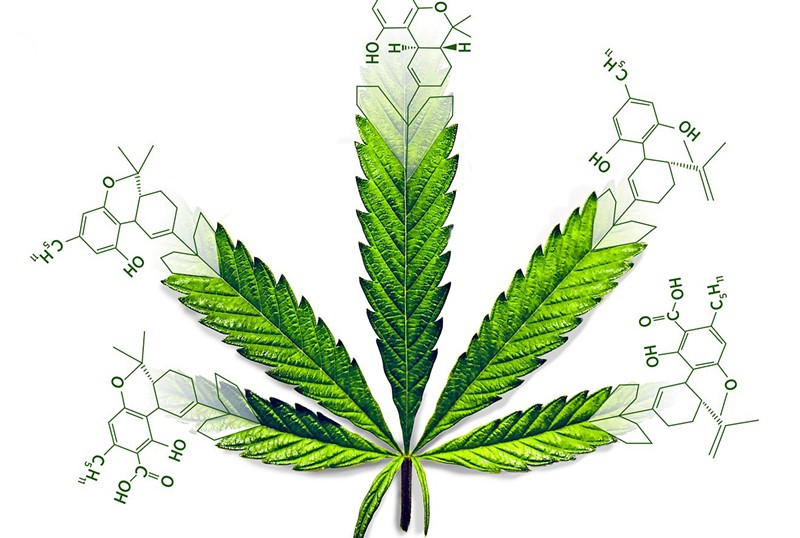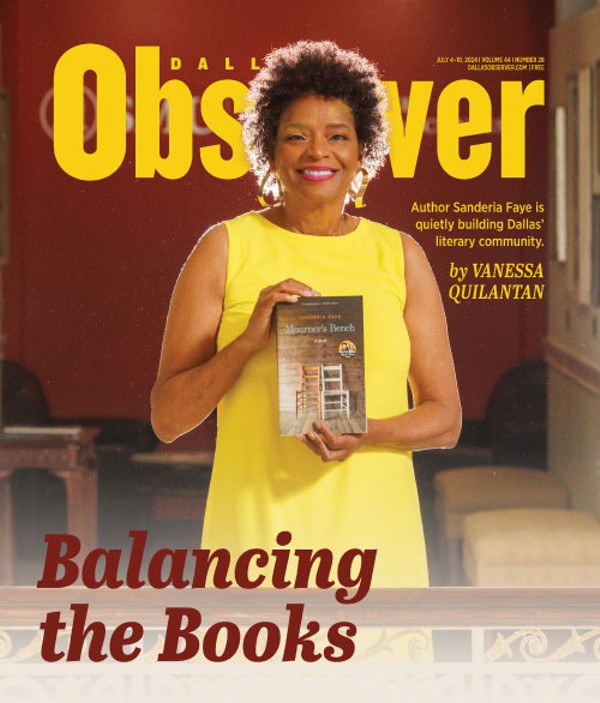There’s no doubt about it. This amendment could absolutely decimate the intoxicating hemp market, which has become a national $28 billion industry, according to Forbes.
The 2018 Farm Bill legalized hemp, defining it as cannabis with 0.3% delta-9 THC or less. Delta-9 THC is the chief psychoactive component in weed that gets users high. The Farm Bill didn’t place any specific restrictions on other forms of THC, such as delta-8, which can also get you high but is generally regarded as less potent than delta-9. So, manufacturers and retailers began making and selling the products like crazy as states like Texas adopted similar hemp laws that defined hemp almost identically.
Ever since, it’s arguably been easier than ever to get high in the U.S. But, for some, it’s about more than getting high. Veterans, for example, have come out as strong proponents of intoxicating hemp products, claiming they can be a replacement for some medications like opioids, especially in a state like Texas that has a pretty restrictive medical marijuana program. In the Lone Star State, the intoxicating hemp market has ballooned into an $8 billion industry.
Nevertheless, the amendment was made by Illinois Republican Rep. Mary Miller, who said she wanted the products to be banned because kids are getting a hold of them, an issue also on the minds of Texas lawmakers. There are also concerns about a lack of regulation around the testing of these products.“We must stop teenagers and children from being exposed to addictive and harmful drugs.” – Illinois Republican Rep. Mary Miller
tweet this
“I am offering an amendment to close the loophole that legalized intoxicating hemp products like ‘Delta-8,’ which is being marketed to teenagers and children,” Miller said in a post on X. “These drug-infused products are often sold in colorful packaging next to candy and snacks, which parents strongly oppose!”
After her amendment passed, she said in a statement, “We must stop teenagers and children from being exposed to addictive and harmful drugs.”
We’re not so sure that these products are being sold alongside regular snacks and candy, or that they’re being marketed specifically to children, but concerns about juvenile use of the substances aren’t completely unfounded. A national survey of high school seniors found that about 11% had used delta-8 in the last year. About 30% of them also said they had used marijuana in the last year. The survey didn’t ask about other intoxicating hemp products like delta-9, delta-10, HHC, THCO or THCa (also called cannabinoids), which would also be banned under Miller’s amendment.
More specifically, Miller’s amendment differentiates between two categories of hemp, according to Forbes. There’s “hemp grown for cannabinoid extraction” used for producing nonintoxicating substances, and there’s “industrial hemp,” used for things like food, fiber and research.
The U.S. Hemp Roundtable, a national advocacy group for hemp businesses, explained in an email that there was no roll call vote on Miller’s amendment. Instead, it was grouped with other amendments and passed.
“We had been assured on several occasions by committee staff and the chairman personally that they would not support any effort to kill the hemp industry,” the email said. “But unfortunately, the decision was made by the chairman to use a procedural tactic to avoid a separate vote on the issue. And that resulted in passage of a deeply flawed and deeply objectionable policy.”
The amendment could even ban some CBD products, the roundtable predicts. “By federally banning all ingestible hemp products with any quantifiable level of THC, the Mary Miller Amendment would result in federal prohibition of 90-95% of all hemp products on the market, even a large majority of popular, non-intoxicating CBD products that naturally contain trace, non-intoxicating amounts of THC in them,” Jonathan Miller, general counsel for the U.S. Hemp Roundtable, said in an emailed statement.“I won’t classify the concern as overblown, but it is incredibly preliminary in the process." – Chelsie Spencer, attorney
tweet this
While it has lost this battle, the organization says the war is far from over. The bill now heads to the House floor for debate, but the organization says its passage this year is unlikely, as there are still a lot of details to be hashed out.
“Even if the House should pass the Farm Bill, the differences between House Republicans and Senate Democrats are considerable at this point,” the group said. “And even if the major issues dividing the parties are resolved, we continue to have many friends in both branches on both sides of the aisle who will work with us to defeat this hemp-killing language.”
While the U.S. Hemp Roundtable shares concerns about children getting their hands on intoxicating hemp products and testing standards, it doesn’t believe a full-on ban is the right thing to do. Instead, commonsense regulations like age-gating and tighter testing standards are the answer.
Miller said, “While we have for years strongly supported efforts to regulate hemp and CBD – even testifying to that effect before Congress – the Mary Miller Amendment throws the baby out with the bathwater, devastating a vibrant industry, killing tens of thousands of agriculture and retail jobs, and denying access to popular products that Americans count on for their health and wellness.”
The roundtable is urging people to reach out to their representatives and tell them to vote yes on the Farm Bill only if the Miller amendment is removed.
Local cannabis attorney Chelsie Spencer told the Observer that things are still pretty early in the process when it comes to possible change to the Farm Bill.
“I won’t classify the concern as overblown, but it is incredibly preliminary in the process,” she said in an email. “The Senate has incredibly strong supporters of the hemp industry, including the original drafters of the 2014 and 2018 Farm Bills. I do expect to see regulations on intoxicating hemp products, but not a complete prohibition.”












